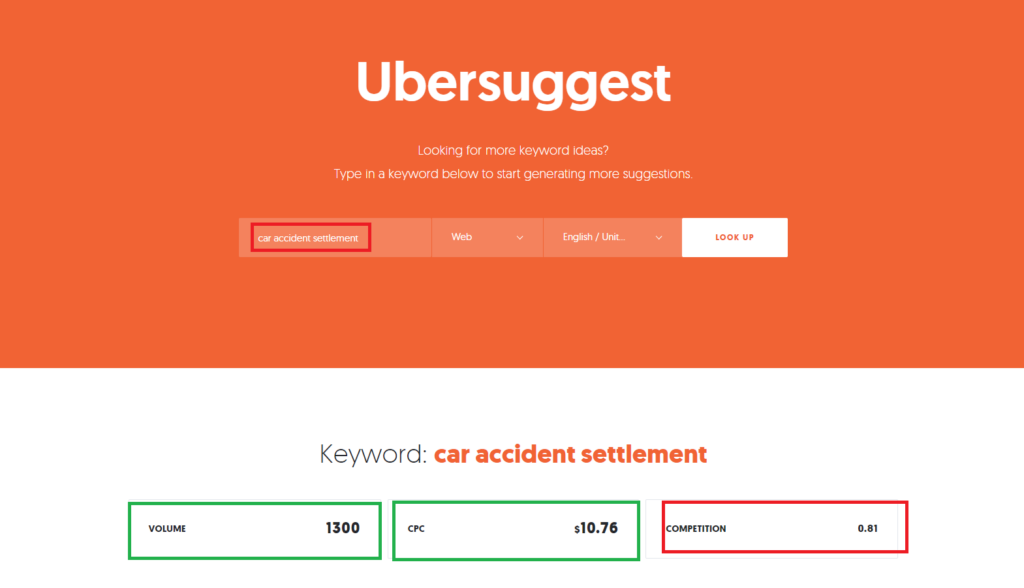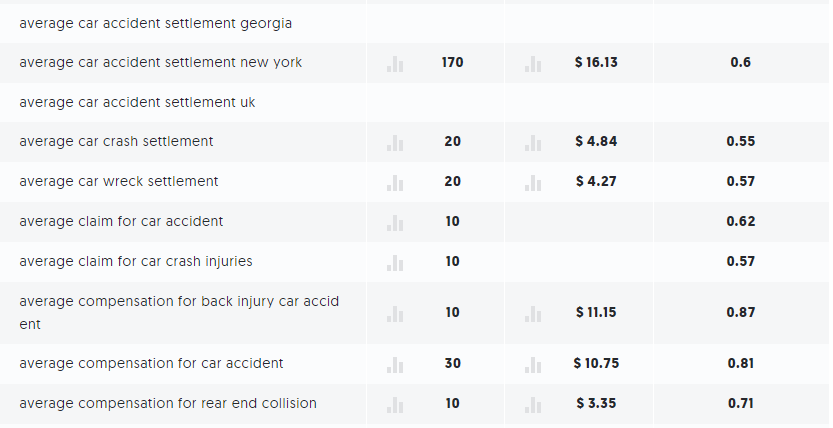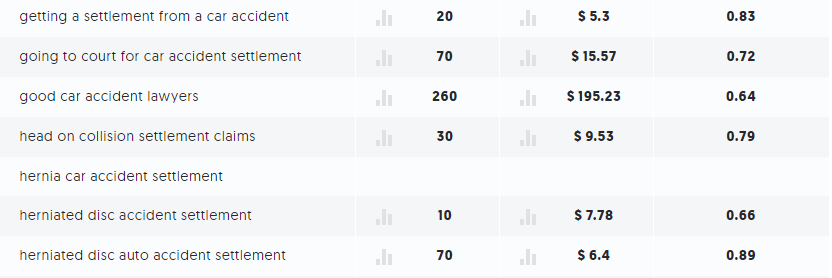How to Earn New Clients by Publishing Strategic Online Content
By now every business owner has heard “You should be blogging” at least a few times. Lawyers are no different.
A blog can greatly improve your organic search visibility and increase your visitor count dramatically.
But what should you blog about? How often should you post? How do you get people to read your content?
That’s why we’re here!
We’re going to break down a few important tips for your legal blog:
1. Focus On Quality over Quantity
You will frequently hear this common advice, “post to your blog as much as possible, 4-5 times per week if you can.”
While it’s true that you should post fresh content often, you don’t want to post just to post. Every article on your blog should have a specific purpose.
Posting one high-quality article per week is more effective than writing 5, 200-word posts that don’t say much of anything.
So, is it important to have new content posted to your blog on a regular basis? Yes.
Do you need to make sure you’re adding a new post daily? NO!
Focus on curating content that people want to read. Answer potential client’s questions in your post – avoid regurgitating headlines that are tangentially related to your practice.
Why is quality more important than quantity?
The reality is this – Google and other search engines are striving to give people the best content for their searches. By providing great content that answers potential client’s questions – you are meeting this measure.
2. Have a Purpose for Your Blog
Like the point made in the last section – you don’t blog just to blog. Adding article after article of content that doesn’t serve an inherent purpose is a waste of your time.
You will see this frequently on legal blogs. Countless articles cover car wrecks in the area, discussing topics that are better suited for other blogs, or press articles about the firm and its attorneys.
I hate to be the one to break this to you – but a person looking for legal assistance doesn’t care about self-driving cars, the latest accident in the city, or the firm softball game.
Then what purpose should my blog serve?
Answer questions. Provide relevant information that you know potential clients will need. Understand your audience.
But how do you know what your potential clients are looking for?
First – use your own experience. What kinds of questions do you hear most often? What typically makes someone seek your firm’s services?
Next – turn to keyword research to ensure you’re targeting the right topics.
3. Don’t Ignore Keyword Research
There are numerous tools that provide copious amounts of information regarding keywords and phrases. Unfortunately, most of them require a paid subscription to be useful. You do have options, though.
With no SEO experience, identifying the best terms to use can seem like a daunting task. But it isn’t as difficult as it seems to come up with a few solid topics.
Start by thinking of questions people ask on your own. For example, suppose you’re a personal injury lawyer. You frequently hear people ask, “how much will my car accident settlement be?”
Using a free tool, Ubersuggest, you can learn about the search volume of the phrase in question and get suggestions for phrases that work better.
You will also see phrases that may work well as a separate post!
Take a look:
Here we searched “car accident settlement.” The number below the keyword are the metrics you’re interested in:
- Volume: How many monthly searches the keyword gets.
- CPC: The average cost per click people are paying when the term is clicked in AdWords.
- Competition: How competitive is the keyword? The closer to “1” the more difficult it is to rank for the term.
In addition, Ubersuggest highlights other options:



As you can see, the tool gives several options that could be viable post themselves – and this is only a small sample of the provided list.
Note: For your blog, you should be focusing on informational keywords. Phrases like “Miami personal injury lawyer” should be saved for landing pages. The keywords can be used in your blog content, but should always be linked back to the practice area page.
Localization
It’s typically a good idea to localize your blog posts. When you’re writing on a broad informational topic, your post can appear in the top of search results nationwide. This means if you have a great post on “hiring a criminal defense lawyer for DUI,” it could show up in a city or state that you don’t practice in. This traffic isn’t what you want. Localizing to a state or city, for example, “hiring a criminal defense lawyer for DUI in Houston,” can help bring you the correct traffic.
4. Survey the Competition
You want your content to rank well on Google and other search engines. The best way to do that? Check the competition and see what you’re up against.
Of course, you never want to copy existing content. Your articles should be original and stand on their own. However, there is nothing wrong with observing what a competitor does and doing it better.
Let’s look at an example – the search results for “Do I Need a Lawyer for DUI?” display a featured snippet from Avvo:

Not only do I want to rank highly for this search – I also want to get that feature. More people will click on it, leading to more traffic to my site.
The result featured is an article from Avvo. The content isn’t bad, but it could be better. First of all, there are no images. By adding an image with an alt tag that contains your focus keyword, you give your article a better chance of ranking. The content could also be improved and laid out better. Don’t be afraid to use features like lists and charts to give your article more authority and a better appearance.
In content marketing circles, this is commonly known as the Skyscraper Technique.
5. Promote Your Content
Most of your traffic should come from organic searches. But that doesn’t mean you shouldn’t share your content wherever possible. The more reach – the better.
Additionally, sharing your content can lead to much-valued backlinks. These can raise the authority of your piece, giving you even more search clout, and in turn, more visitors.
So, where you should you share your article:
- Avvo
- Relevant Forums (This can be trickier as many forums have anti-spam rules. Generally, you need to be an active member of a group to share links)
- Other Social Media Platforms
Essentially, you need to get the word out there about your posts. The more people you can get talking about it and sharing it, the better.
6. Monitor Your Results
If you aren’t already using Google Analytics to track your website data, you need to be. You can see how many people have visited an individual page (or post) and evaluate what content is doing well and what should be improved.
Another immensely valuable tool for evaluating content is Google Search Console. Here’s a handy video for setting it up if you haven’t already:
Search Console is valuable because it tells you what people are searching for when they see your content. Even better, it tells you when you got a click vs. when it was simply an impression (someone saw your link in results). You can use this information to optimize for essential keywords.
Codedesign.org has a great guide on this process.
It’s important to remember that posting your content is merely the first step. You need to promote, monitor, and adjust based on the results you’re getting (or not getting).
7. Have Your Staff Write Down Questions
Every-time a client calls you get a new opportunity to generate new clients through blogging. How? Write down the questions that your existing clients and new prospects ask you. If they’re asking you this question they may have already looked online and couldn’t find the answer.
This represents an opportunity for you to fill the void. Create a piece of content (written, audio, video, etc.) and answer the question better than anyone else. This leads me to my next point. Be the best.
8. Be Thorough. Be The Best
When you’re forced to write you might feel like you’re making progress by quickly answering a question and hitting publish on your blog. But this may not be enough. See, Google is looking to reward the sites with the best answer in the search results. But more importantly, this represents an opportunity for you to get in front of your ideal clients and showcase your expertise.
So before you hit publish on that latest blog post make sure to ask yourself if the article meets your standards. Then do some Googling yourself. Do other people who already rank have better content than you? If so, go back to the drawing board and enhance it until you’re the best.
9. Add Images & Video
Thankfully adding images and video to your blog in 2021 is an easy task. If you need help creating images simply go to Canva.com and create something in a couple of minutes. If you want to include a video you can download the apps Soapbox or Loom. This will allow you to create a video explanation and easily include it in your blog.
10. Know your audience
Before you start writing, it’s important to understand who you are writing for. This will help you tailor your content to their needs and interests.
11. Keep it professional
As an attorney, it’s important to maintain a level of professionalism in your writing. Avoid using slang or overly casual language, and be sure to proofread your work for spelling and grammar errors.
12. Write compelling titles
A good title can help draw readers in and encourage them to read your blog post. Make sure your title accurately reflects the content of your post and is attention-grabbing.
13. Use subheadings
Subheadings help break up your content and make it easier for readers to scan and understand. Use them to highlight key points and help guide readers through your post.
14. Use images and videos
Adding visual elements to your blog post can make it more engaging and easier for readers to understand. Just be sure to use high-quality images and videos that are relevant to your content.
15. Keep it concise
While it’s important to provide detailed and accurate information in your blog post, it’s also important to keep it concise. Aim for around 500-750 words per post.
16. Use bullet points
Bullet points are a great way to present information in a clear and concise manner. Use them to highlight key points or steps in a process.
17. Include calls to action
At the end of your blog post, include a call to action, such as inviting readers to leave a comment or encouraging them to sign up for your email list.
18. Optimize for search engines
Use keywords in your post to help it rank higher in search engine results. This will help more people find your blog post when searching for relevant topics.
19. Promote your post
Once your blog post is published, be sure to promote it through your social media channels and email list. This will help drive traffic to your blog and increase the reach of your content.
Wrapping Up
A blog is a critical tool for your website and your overall presence online. These are just a few tips that should help you get started or get re-oriented on your blogging journey.
Focus on creating helpful content that will establish you as an authority in your area of law. Aim to provide high-quality, useful information to anyone visiting the site, regardless if they’ll end up becoming a client.
Don’t worry about getting a new post up every day – create content that people want or need to read.
And if you need help with your content, that’s what we’re here for. Reach out today. We’re happy to help with a variety of digital marketing services for lawyers.
